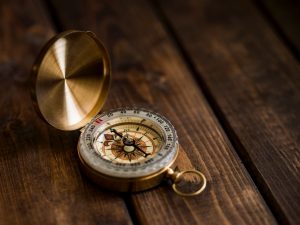
The world is changing so fast that we can’t keep track. We used to study about globalization at school or university, but never felt it as a real issue in our lives. Now it’s enough to look outside the window in Western Europe and see the pale blue sky, turned grayish by the smoke from the fires in America’s West Coast, to understand that we really are in one boat.
We’re navigating the world as if we live in a three-dimensional world, but we don’t; we’re living in a sphere, and every point in that sphere touches every other point. Anything we do, say, or even think touches everyone else in the world. It’s a scary thought, but nonetheless true. I agree with former U.N. Secretary-General Ban Ki-Moon, who recently connected the world’s problems to “a lack of global partnership,” but I think it’s deeper than partnership; our survival has become connected.
In fact, the first lesson that the coronavirus taught us was that we’ve shifted to a new dimension of existence, a spherical one, where every single element impacts every other element. Many people used the phrase, “An infection anywhere is an infection everywhere,” to describe our mutual accountability with regard to the coronavirus, but this is just as true with regard to everything else.
Therefore, even though we do not like each other, and in many cases wish each other the worst, we cannot afford to maintain this attitude; it will hurt us very directly and very personally. We have become responsible for one another in the full sense of the word. We should care about the fires and hurricanes in the US as though they are happening in our own town; we should care about the millions of people dying from Covid as though they were our own family, and we should care about the millions of people around the world who do not have sufficient food and water, shelter, or even sanitation. We should care about all the people who are suffering because they today are we tomorrow, as simple and as literal as that.
And it’s not as if there’s nothing we can do. There is plenty of food and water for everyone; there is much we can do to curb Covid and even cure it, and there is much we can do to help Earth balance her climate. But in the current dog-eat-dog attitude, we’re not going to do anything and we will all drown in Earth’s sinking boat.
So the first thing we need to do is change how we relate to one another. If we change the social atmosphere, it’ll suddenly feel very natural to help one another. When that happens, the vast resources we have stored for our own needs, and in order to deny them of others, will quickly find their way to where they are most needed. We can change the face of the Earth and the fate of humanity in a matter of months; it’s just a matter of switching from a negative attitude to a positive attitude toward others. If we exercise this, we’ll live in heaven on Earth. If we don’t, we won’t need to die to go to Hell; it’ll come up to us.